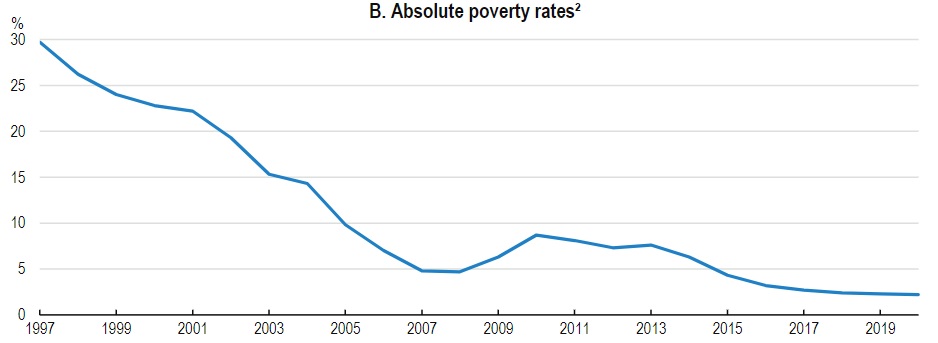I wrote yesterday about how pro-market policies in Estonia are helping that nation catch up (converge) with other European nations.
Indeed, Estonia arguably is the most successful country to emerge from the economic wreckage of Soviet socialism.
Above-average growth has been especially beneficial for the less fortunate (and socialism meant a lot of people were in this category).
As you can see from the chart I shared yesterday, the share of people suffering from serious poverty has plummeted.
Based on this data, one might think that Estonia would win universal praise from right and left. The former would applaud the pro-market policies and the latter would applaud how so many people have been lifted out of poverty.
Unfortunately, the bureaucrats at the Organization for Economic Cooperation and Development (OECD) don’t seem to be happy about Estonia’s economic renaissance.
And what’s really remarkable is that the data I cited yesterday came from an OECD report. Yet that same report advocates policies that would be harmful to that nation’s economy.
For instance, the report notes (accurately) that demographic changes are going to create fiscal pressure in Estonia, but the OECD bureaucrats then state that the problem is insufficient tax revenue.

To make matters worse, the bureaucrats from the OECD want the Estonian government to weaken or reverse some of the country’s best policies.
Such as the top-ranked business tax system and the pro-growth flat tax.

There are other recommendations in the OECD report that would hurt Estonia’s economy, such as a higher minimum wage and more regulation of labor markets (an area where Estonia already has problems).
To be fair, the report does suggest lower tax rates for low-wage workers, so not every recommendation is anti-growth.
But one good suggestion doesn’t excuse a dozen proposals to increase the burden of government. This report on Estonia is further evidence that the OECD arguably is the world’s worst bureaucracy (which is quite an achievement considering the many shortcomings of the IMF).
———
Image credit: DG EMPL | CC BY-ND 2.0.


